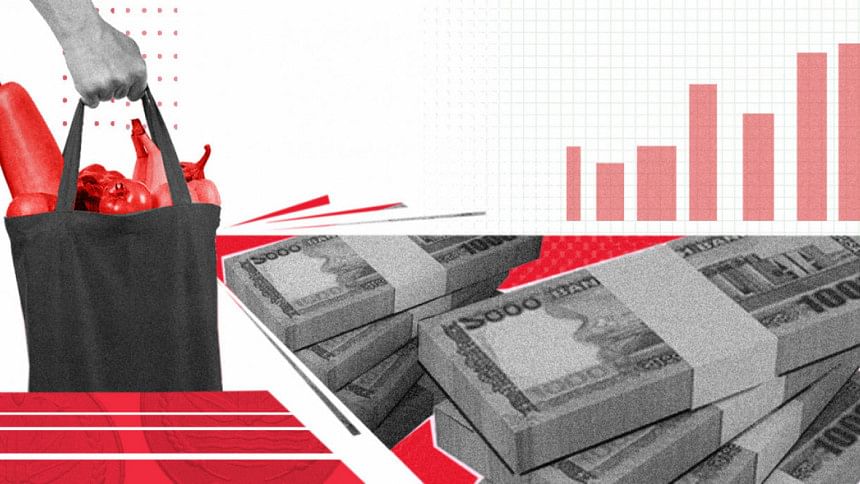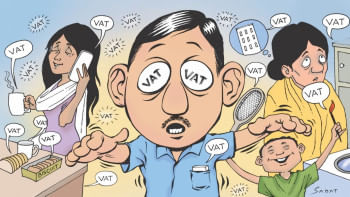Prioritise TIN returns over VAT hikes

In its bid to mobilise revenue, the government has decided to increase value-added tax (VAT) and supplementary duties on over 100 products and services, including essentials such as liquefied petroleum gas (LPG), soap, detergent, and biscuits. While this measure aims to bridge the widening budget deficit, it disproportionately burdens the middle class and low-income groups already grappling with high inflation and constrained purchasing power. A more equitable and sustainable approach would focus on improving compliance with income tax return submissions rather than relying on regressive tax hikes.
According to the National Board of Revenue (NBR), there were more than 1.02 crore Taxpayer Identification Number (TIN) holders as of April 25, 2024. While this reflects an encouraging expansion in the tax base, the reality is disheartening: 59 percent of these TIN holders did not file tax returns in the financial year 2023-24. Among registered companies, the compliance rate is even worse. Of the 2.88 lakh registered companies, only 8.45 percent filed returns in the same fiscal year. These figures reveal a significant disconnect between the generation of TINs and the actual filing of returns.
This gap stems partly from the ease of obtaining an e-TIN, introduced in 2013 to make tax compliance more accessible. With minimal requirements—such as a national ID for individuals or an incorporation certificate for companies—many people have acquired TINs out of curiosity or for specific transactions, such as land transfers or trade licenses, without any intention of submitting returns. Additionally, a portion of TIN holders has become inactive or deceased, further skewing the statistics.
Efforts to encourage return submissions, such as mandating proof of submission for availing over 43 services, have yielded limited success. Without stricter enforcement or incentives, the lack of compulsion continues to deter taxpayers from fulfilling their obligations. The NBR's own reports show that nearly 5.28 lakh people who obtained TINs for land transfers and another 3.75 lakh for various one-time purposes do not regularly file returns. Meanwhile, dormant companies and individuals with minimal taxable income remain outside the compliance net.
The historical context sheds light on this issue. Before 1995, taxpayers were identified by General Index Register (GIR) numbers, maintained manually by tax circles. The introduction of TINs marked a shift towards digitisation, but the ease of obtaining an e-TIN since 2013 has inadvertently inflated the number of TINs without corresponding growth in tax compliance.
The recent VAT increases are regressive in nature, disproportionately impacting low- and middle-income families. With inflation at 10.89 percent in December 2024—and food inflation even higher at 12.92 percent—raising VAT on everyday items like LPG, soap, and biscuits exacerbates the cost-of-living crisis. Economists have voiced concerns that such measures hurt those with fixed incomes far more than the affluent, who can absorb these costs with minimal lifestyle adjustments.
While the government argues that VAT hikes are necessary to meet revenue shortfalls—especially under pressure from the International Monetary Fund (IMF)—this approach undermines social equity. Revenue collection efforts should instead target those who can contribute more, such as high-income individuals and large corporations that evade taxes through loopholes or non-compliance.
Rather than resorting to VAT hikes, the government should focus on increasing tax compliance among TIN holders. Several measures could be adopted to bridge the gap between TIN generation and return submissions:
i) Implementing stricter regulations to compel all TIN holders to file returns, regardless of income level, could significantly improve compliance. Simplified filing processes and better public awareness campaigns would support this transition.
ii) Conducting regular audits to identify and deactivate dormant or irrelevant TINs would provide a clearer picture of active taxpayers and reduce administrative inefficiencies.
iii) Offering tax credits, rebates, or other benefits for timely return submissions could encourage more people and entities to comply.
iv) Strengthening enforcement mechanisms for registered companies, which currently exhibit dismal compliance rates, should be a priority. Penalties for non-compliance, coupled with support for small businesses to navigate the tax system, could address this issue.
v) Expanding digital infrastructure to make filing returns seamless and error-free would reduce barriers to compliance. Transparency in how tax revenues are utilised could also build trust and encourage voluntary compliance.
Revenue mobilisation is essential for addressing the budget deficit and funding public services, but it must be pursued in a way that upholds fairness and minimises economic hardship. Prioritising the enforcement of tax return submissions over VAT hikes aligns with the principles of progressive taxation, ensuring that those with higher incomes contribute their fair share.
The government's focus on VAT and supplementary duty hikes is a short-term fix that risks alienating the very population it seeks to serve. Instead, a long-term strategy centred on improving tax compliance and broadening the income tax net would foster economic resilience and social equity. By addressing the root causes of non-compliance among TIN holders and companies, the government can achieve sustainable revenue growth without overburdening vulnerable groups.
Molla Mehedi Hasan is former research assistant at Islamic Relief Bangladesh and postgraduate student of sociology at Khulna University. He can be reached at [email protected].
Views expressed in this article are the author's own.
Follow The Daily Star Opinion on Facebook for the latest opinions, commentaries and analyses by experts and professionals. To contribute your article or letter to The Daily Star Opinion, see our guidelines for submission.

 For all latest news, follow The Daily Star's Google News channel.
For all latest news, follow The Daily Star's Google News channel. 










Comments